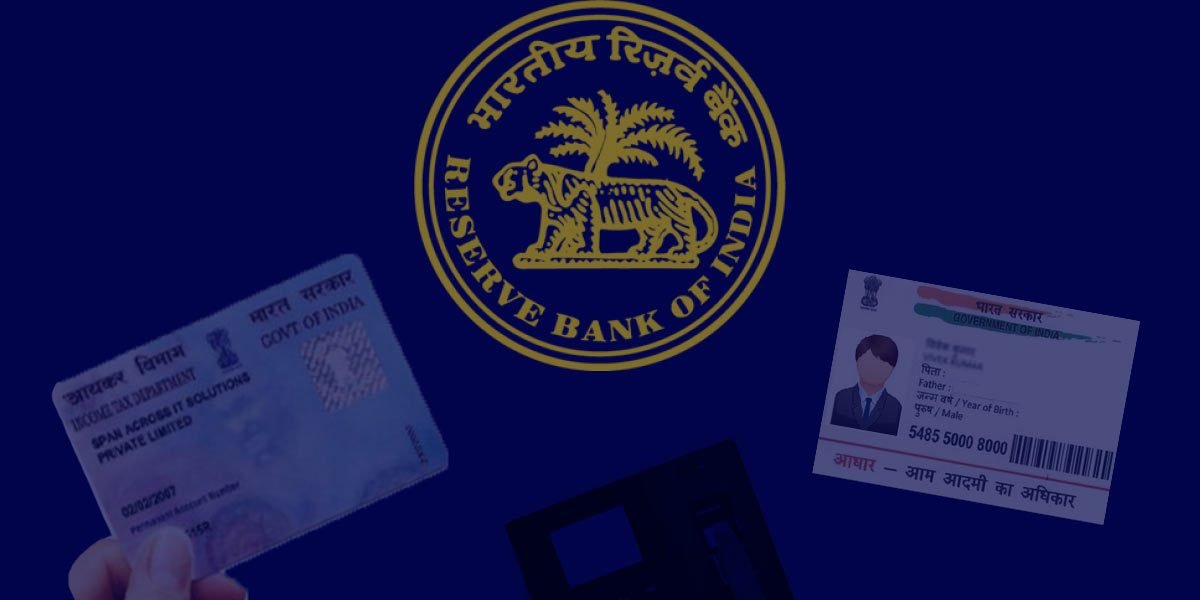At a time when the Supreme Court is about to have final word on Aadhaar linking issue, the Reserve Bank of India (RBI) has amended its ‘know your customer’ (KYC) guidelines, making Aadhaar and PAN mandatory to maintain a bank account.
In a circular, the central bank said the norms have been revised because the government had amended laws on prevention of money laundering through a gazette notification in June 2017.
“The customer, eligible to be enrolled for Aadhaar and obtain the Permanent Account Number, except one who is a resident in the State of Jammu and Kashmir or Assam or Meghalaya, already having an account based relationship with regulated entities (like banks), shall submit the Aadhaar number and PAN/ Form 60 by such date as may be notified by the Central Government,” the RBI said while updating its Master direction on Know Your Customer (KYC) norms.
In case the customer fails to submit the Aadhaar number and Permanent Account Number/form 60, the account shall be deactivated till the documents get submitted.
The Aadhaar requirement though is relaxed for residents of Jammu & Kashmir, Assam and Meghalaya. It also added that the periodic updation should be carried out at least once in every two years for high-risk customers, once in every eight years for medium risk customers and once in every ten years for low-risk customers.
The move, however, will be subject to the verdict in the apex court, clarified the central bank. In March, the SC struck down a March 31 deadline for mandatory linking of Aadhaar to avail of various services until its constituent bench came up with a verdict.
This is RBI first guidelines after the government had notified the norms on June 1, 2017. The government had made Aadhaar mandatory for opening bank accounts as well as for any financial transaction of Rs 50,000 and above.
In budget 2017, it had already mandated seeding of Aadhaar number with PAN to avoid individuals using multiple PANs to evade taxes.
The central bank was in discussion with the government and had pointed out several lacuna in the mandatory linking of Aadhaar with bank accounts, said sources close to the development.
A person who is residing in India for more than 180 days is eligible for applying for a Aadhaar number, according to Aadhaar Act.
Earlier, last year, RBI had also directed companies and banks to make KYC (know-your-customer) compliant prepaid payment instruments (PPIs) — mobile wallets, interoperable within the next six months. According to the new guidelines, all the PPIs will now be interoperable, which means it will allow a transaction with each other. It brought in fraud detection norms to prevent fake wallet transactions.













